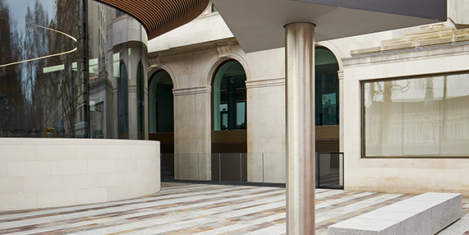April 5, 2017
How to prepare your business for the new Gender Pay Gap regulations 0

From April 2017, employers with over 250 employees will be required to reveal specific information about the difference in net pay and bonuses between male and female employees explain the legal experts from Berg. The Office for National Statistics revealed that, in the financial industry, male managers and directors are earning on average 32.4% more than women in the same role. Whilst the statistic will vary from industry to industry, it’s important to highlight the divide and work together to accomplish equality in the workplace. The Equality Act 2010 (Gender Pay Gap Information) Regulations 2017 comes into force on 6th April 2017, and will require businesses to be transparent about the gender equality in their workplaces. It is hoped that this important move will encourage any business with less than positive statistics to make the move towards creating an equal workplace. For businesses that will need to report on their net pay, it’s a big task that needs to be executed properly. In fact, a survey by NGA Human Resources found that 20% of respondents won’t be ready to disclose the information by the deadline. With that in mind, here’s a look into what the regulations require you to do, and how these changes could impact your business.





























 Amos Tversky and Daniel Kahneman introduced the concept of Loss Aversion in 1984, highlighting people’s tendency to strongly prefer avoiding losses to acquiring gains. Most studies suggest that losses are twice as powerful, psychologically, as gains. Lose £100 and we will feel a remorse that easily outweighs winning £100. In a similar fashion we find it very hard to see future positives when confronted with short term loses. We understand easily what we have lost but cannot imagine what there is to be gained. Furthermore, as Frederic Bastiat wrote in an 1850 paper, “That Which is Seen, and That Which is Not Seen”, man has a tendency to “pursue a small present good, which will be followed by a great evil to come, rather than a great good to come, at the risk of a small present evil”. Put these together and it is no wonder that, by and large, the future of work, corporate real estate and the workplace is so widely misunderstood.
Amos Tversky and Daniel Kahneman introduced the concept of Loss Aversion in 1984, highlighting people’s tendency to strongly prefer avoiding losses to acquiring gains. Most studies suggest that losses are twice as powerful, psychologically, as gains. Lose £100 and we will feel a remorse that easily outweighs winning £100. In a similar fashion we find it very hard to see future positives when confronted with short term loses. We understand easily what we have lost but cannot imagine what there is to be gained. Furthermore, as Frederic Bastiat wrote in an 1850 paper, “That Which is Seen, and That Which is Not Seen”, man has a tendency to “pursue a small present good, which will be followed by a great evil to come, rather than a great good to come, at the risk of a small present evil”. Put these together and it is no wonder that, by and large, the future of work, corporate real estate and the workplace is so widely misunderstood.








February 10, 2017
Reflections on the future of work from a mirrored room 0
by Neil Usher • Comment, Facilities management, Technology, Workplace design
(more…)